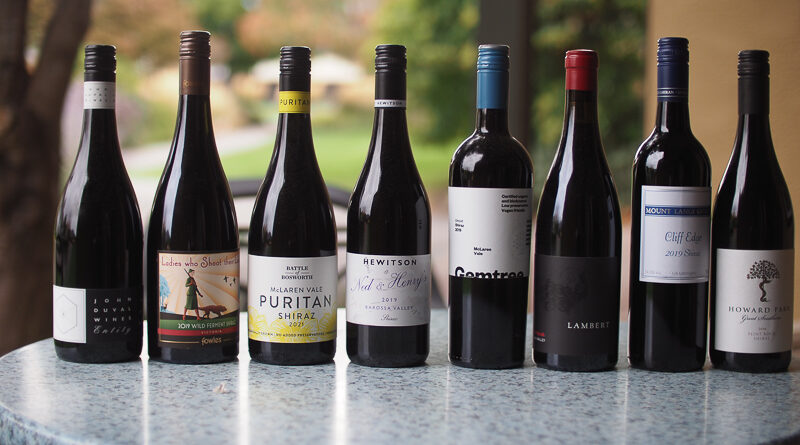A focus on Australian Shiraz: freshness, diversity and a sense of place
I took part in an international virtual tasting of some top Australian Shiraz wines last week, hosted by Mark Davidson of Wine Australia. Shiraz is an important variety for Australia, and this versatile grape expresses itself in many ways – after all, Australia is a large country and has wine regions spanning many different climatic zones.
There are a number of themes in recent Australian Shiraz history, and these were explored in the session. Viticulturist Dr Dylan Grigg pointed out that Australia has the largest repository of old vine Shiraz in the world. Do old vines make a difference? ‘There’s evidence that suggests yes,’ says Grigg, who did his PhD on epigenetic changes in old vine Barossa Shiraz. ‘They are there for a reason,’ he says. ‘They were probably planted on good sites, so they will be the cream of the crop.’ He says that the oldest vines are pre-phylloxera (this hasn’t reached South Australia, even today) and polyclonal. ‘They have also adapted to their sites.’ In his research he found some objective evidence of better quality from old vines.
One other factor that has helped is improved management practices of this old vine resource. There’s also the possibility that the improved viticulture has contributed to the freshness now being seen in Barossa Shiraz: the increased care and attention lets farmers see when the grapes are ripe, and not overripe. Also, with old vines, they ripen more slowly than young vines, giving more of a chance for picking just at the right time.
‘It’s an exciting time to be making Shiraz in the Barossa,’ says Tim Duval, son of John (who was the chief winemaker for Penfolds for many years). ‘We have this great resource of vines, and we are trying to showcase fruit, not winemaking artefact.’ And the move to fresher styles? ‘There is probably a general trend to picking earlier, looking for freshness,’ he says. ‘A lot of this is from confidence in our vineyards.’ Winemaking has also changed. ‘It used to be no wood no good,’ he says, noting that now there’s a wide divergence in winemaking approaches other than just small oak barrels.
Melissa Brown of Gemtree spoke about how farming with biodynamics has affected wine style and quality. ‘The skins are thicker and there is better balance in the fruit,’ she says. ‘There is better acid balance and less hydrogen sulfide is produced in the ferments.’ But this wasn’t an overnight change. ‘It took nearly 10 years for us to be able to see the quantifiable changes.’ Their vineyard had an intensive input regime before conversion, with super phosphate and pre-emergence herbicides. ‘It took a long time to repair the soils.’ They have taken part in a scientific study looking at the effects of different farming practices over a number of seasons, and in the sensory arm of the study the wine from biodynamically farmed grapes was preferred over those from conventional and organically farmed blocks.
THE WINES
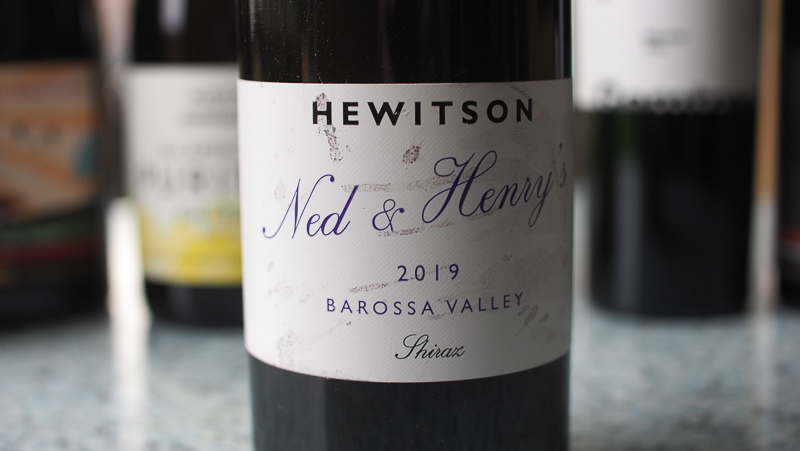
Hewitson Ned and Henry’s Shiraz 2019 Barossa Valley, Australia
14% alcohol. Ferrous loam (terra rossa) over clay, over limestone soils. Planted in 1995, organic farming. 16 months maturation in seasoned French oak. Ripe and supple with sweet cherry and raspberry fruit. This has some fruit sweetness, and it tastes ripe, but it’s really well balanced with some fresh cherry notes on the finish as well as just a touch of tar and vanilla. A lovely accessible style with a silky smooth texture. 92/100
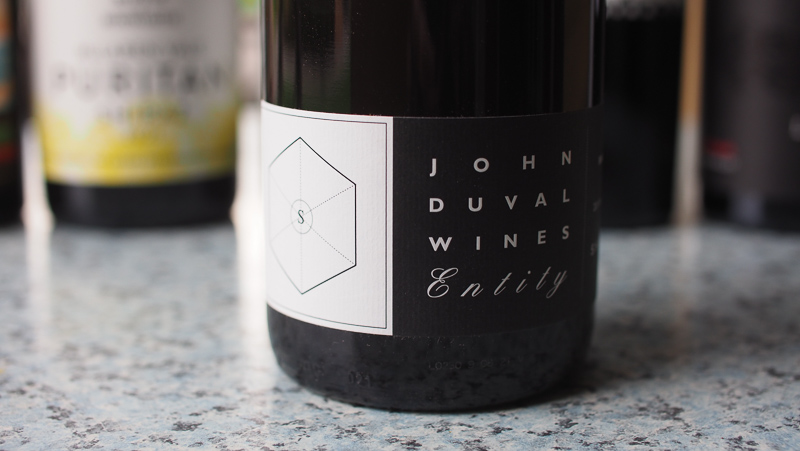
John Duval Entity Shiraz 2019 Barossa Valley, Australia
14.5% alcohol. A range of soil types and vine ages, with the oldest being centenarian vines in the northern Barossa. Matured for 17 months in French oak (35% new). This is supple and fresh with nice spicy framing to the lush (but not overripe) cherry and berry fruit. There’s some creaminess here and it has a lovely soft mouthfeel, but under all that smooth sweet fruit there’s certainly some tannin. Slightly salty on the finish. 94/100
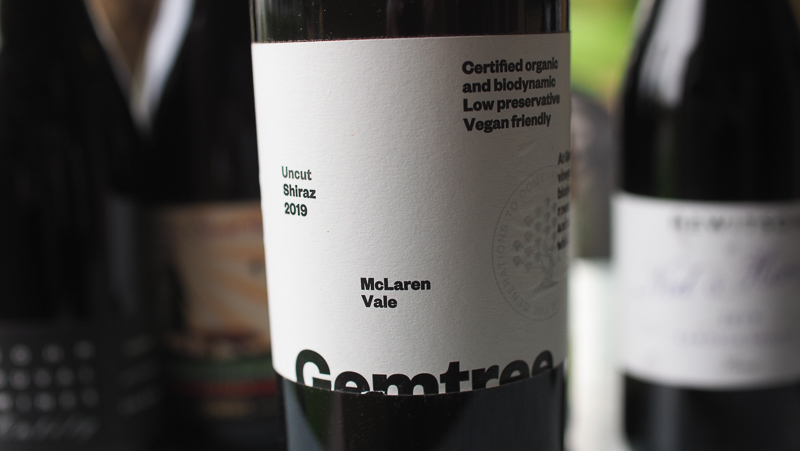
Gemtree Uncut Shiraz 2019 McLaren Vale, Australia
14.5% alcohol. Biodynamically farmed, various soils, 30 year old vines, 16 month maturation in French oak, 15% new. This is fresh, supple, slightly salty and shows lovely black cherry and blackberry fruit. It has a sense of brightness with a grippy edge to the sleek black fruits, making it really nicely balanced, with sweet generous fruit countered by savoury grip. A lovely expressive wine. 93/100
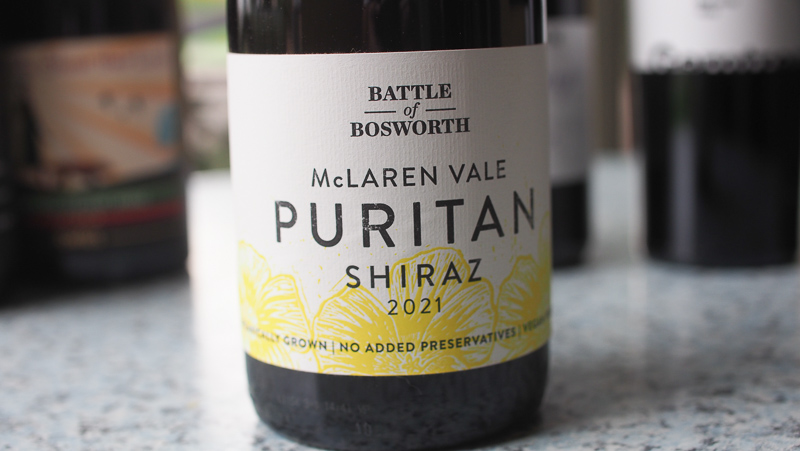
Battle of Bosworth Puritan Shiraz 2021 McLaren Vale, Australia
14.5% alcohol. No added sulfites, matured in stainless steel. This is an intense colour and has a lovely nose of floral black cherry and blackcurrant fruit. On the palate it’s really primary and delicious with a slight saltiness, and liqueur-like slightly jammy red and black fruits. So enjoyable and primary, this is a joy to drink. 92/100
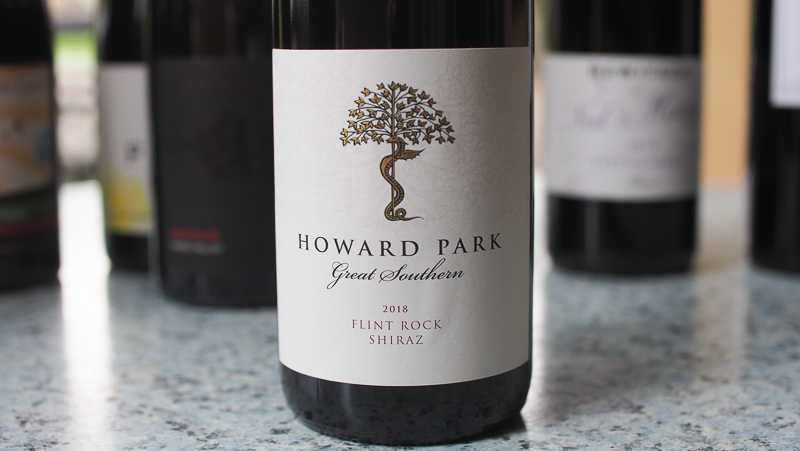
Howard Park Flint Rock Shiraz 2018 Great Southern, Western Australia
13.7% alcohol. Sandy/gravel loam soils. 20% whole bunch ferment, aged in a mix of barrels and stainless steel. Supple, fresh and quite understated with a touch of mint adding freshness to the cherry and raspberry fruit. There’s a hint of tar and some crunchy tannin here, as well as sweet, well balanced fruit. Finishes fresh and a bit salty. 92/100
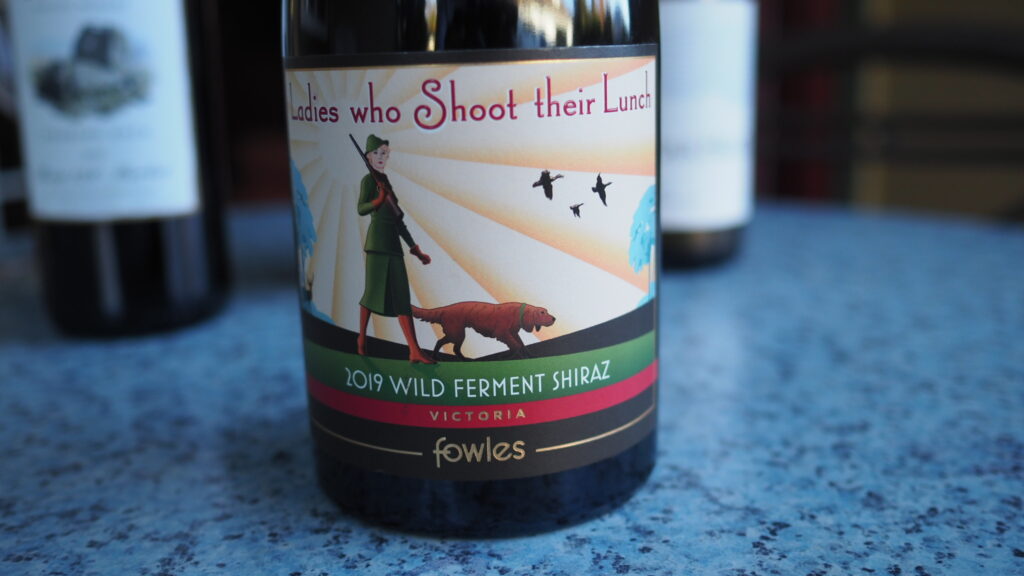
Fowles Wine Ladies Who Shoot Their Lunch Wild Ferment Shiraz 2019 Strathbogie Ranges, Victoria, Australia
14.9% alcohol. Sandy loam soils over granite, matured in French oak (3% new). This is a concentrated, vivid wine with some sweet cherry and berry fruit but also a sense of freshness and a bit of grippy structure. Lively and bright with nice intensity and a sweet fruit core. Shows nice balance, despite the reasonably high alcohol. 93/100
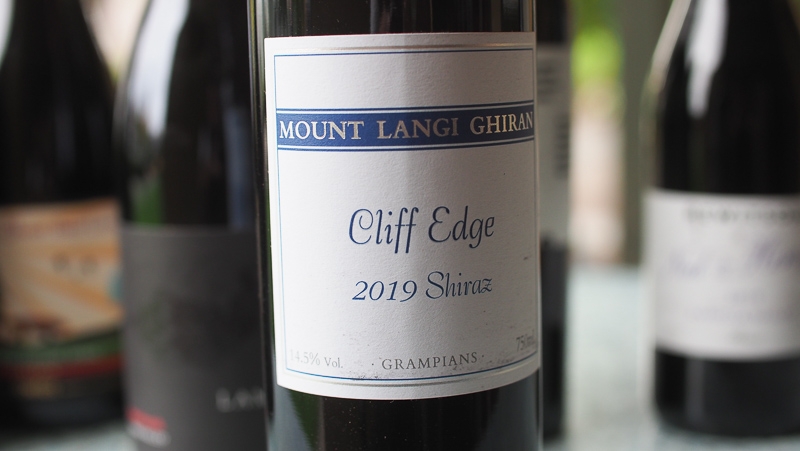
Mount Langhi Ghiran Cliff Edge Shiraz 2019 Grampians, Australia
14.5% alcohol. 25 year old vines planted in granite over red clay loam soils. There’s a lovely sweet fruit core here: it’s smooth and rounded with a rich, sweet mid-palate and a slight saltiness on the finish, which also has some nicely resolved but still present tannin. Lots of appeal here: ripe but beautifully balanced. 92/100
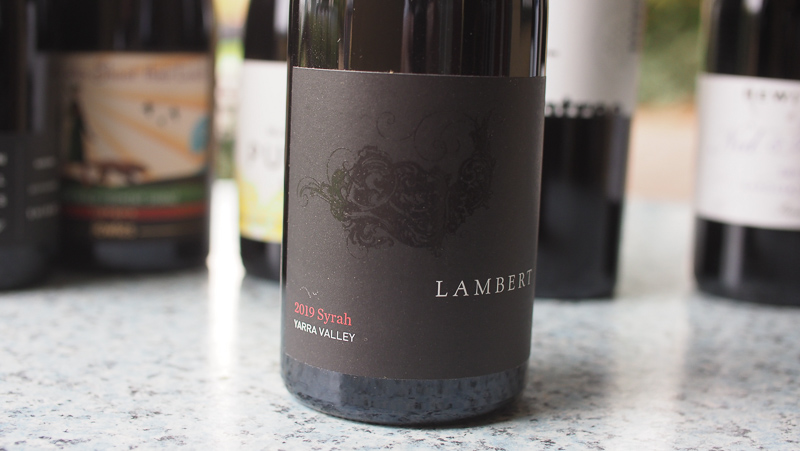
Lambert Wines Syrah 2019 Yarra Valley, Australia
13.5% alcohol. Old red/black volcanic soils, vines planted in 2001, organically farmed. 80% whole bunch, matured in a 5000 litre foudre. This is fresh, vivid and really fine with lovely black cherry and blackberry fruit with a touch of pepper. It’s sweetly fruited with some silkiness on the mid-palate, but at the same time has freshness and appropriate structure. A beautiful floral, fruity expression of Syrah. 95/100
Find these wines with wine-searcher.com

